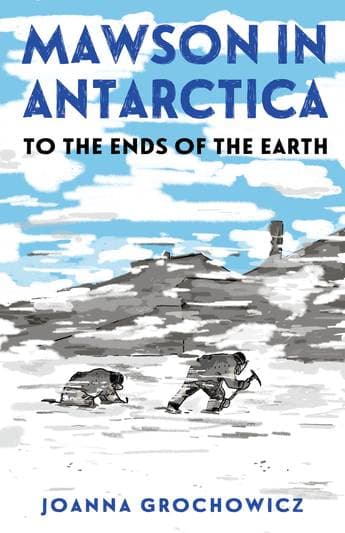
Mawson in Antarctica
Find your copy...
Douglas Mawson is a national hero and Antarctic explorer, famous for one of the most extraordinary feats of endurance in the history of polar exploration. His amazing story is brought vividly to life in compelling narrative non-fiction by the acclaimed author of Into the White: Scott's Antarctic Odyssey, Amundsen's Way and Shackleton's Endurance.
Antarctica. Winter 1912.
Hunkering down in the windiest place on earth, eighteen young Australians eagerly await a chance to prove themselves as polar explorers and scientists. The spring sledging season will bring adventure, danger, and the discovery of new lands under the command of Douglas Mawson. But tragedy also lies in wait.
Douglas Mawson's tale is legendary, an epic struggle between one man's self-belief and the worst conditions the hostile polar environment can throw at him. His journey represents not only a feat of physical endurance but also a triumph of the human spirit's ability to conjure hope when luck has all but run out.
'While there were facts about Mawson with which I was familiar, Grochowicz's skill in constructing a narrative around these, and imparting a real sense of being 'on the spot' makes for a truly immersive experience.' - Just So Stories
Praise for previous books in this polar adventure series:
'An incredible true story, brought to life in highly readable style.' Michael Smith, author of Shackleton – By Endurance we Conquer.
About the Author
Joanna Grochowicz is a polar historian and author. Fast-paced and exquisitely written, her books of early Antarctic exploration reveal in fascinating detail the human aspirations and tragedies that have shaped our understanding of the polar regions. Drawing on diaries, letters and expedition narratives from archives and personal collections around the world, Grochowicz brings to light new and often overlooked elements of heroic age exploration. Realistic portrayals of historical figures and the interplay of personalities lend her work a grittiness and authenticity that is not often present in historical writing for children and young adults.





